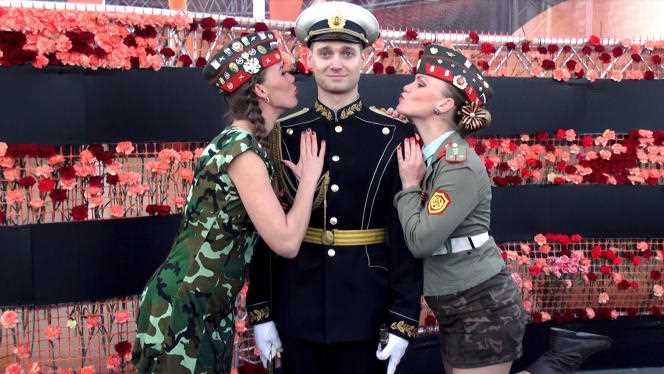In Copenhagen, the CPH:DOX, one of the world’s major meetings devoted to documentary cinema, has been inviting for almost twenty years to engage in a democratic dialogue with directors and producers, as well as with the outstanding figures of the selected works. . Rich with more than 200 new films, including 76 world premieres, screened in about fifteen places, including the legendary Bremen Teater – formerly used by the Danish magnate Simon Spies to view his collection of erotic films – or even the basements of everyday life national politics, this new edition (which took place from March 23 to April 3), launched a month after the invasion of Ukraine by Russia, held a unique place.
While a number of Ukrainian filmmakers have spoken out against the release of Russian films around the world, the Danish demonstration has managed to circumvent the controversy: on the one hand, it has added documentaries on Ukraine at the last minute – seven in total – and, on the other hand, it brought together, under the title “Putin’s Russia”, three films from foreign productions. The latter, both comprehensive and allusive, funny and tragic, illustrate, each in their own way, what Daniel Roher, the Canadian director of Navalny, summarized with a formula: “Putin is not Russia, and Russia is not Putin. » Filmed in the months leading up to the war, these images necessarily gain in urgency and complexity, offering new insights behind the flow of television news and, indeed, history.
In this context, one of the most beautiful films of the festival, Holidays (Switzerland, 2022), by Antoine Cattin, a Jura resident who has lived in Russia for many years, follows the lives of ordinary people in Saint Petersburg since the annexation of Crimea in 2014. By focusing on public holidays – Russia is one of the countries best endowed with holidays – this abundant fresco reveals, through the rapid succession of its ultra-mobile shots, shot by the protagonists themselves, the paradox of a country which, like all authoritarian regimes, tries to unify and create a single narrative, but whose national holidays systematically end with the repression of the forces of order.
“The demonstrations that we see are quite marginalexplains Cattin. In March, when McDonald’s, Uniqlo and Ikea announced the suspension of their activities in Russia, people rushed to their stores, but few of them took to the streets to demand explanations. On March 13, the anti-war demonstration in Saint Petersburg brought together 3,000 people, even though the city has more than 5 million inhabitants. It’s as if they said to themselves that it was useless, the demonstrations not being broadcast on television. The last time there were major anti-Putin rallies was in 2011-2012, following the legislative elections. »
You have 59.33% of this article left to read. The following is for subscribers only.
